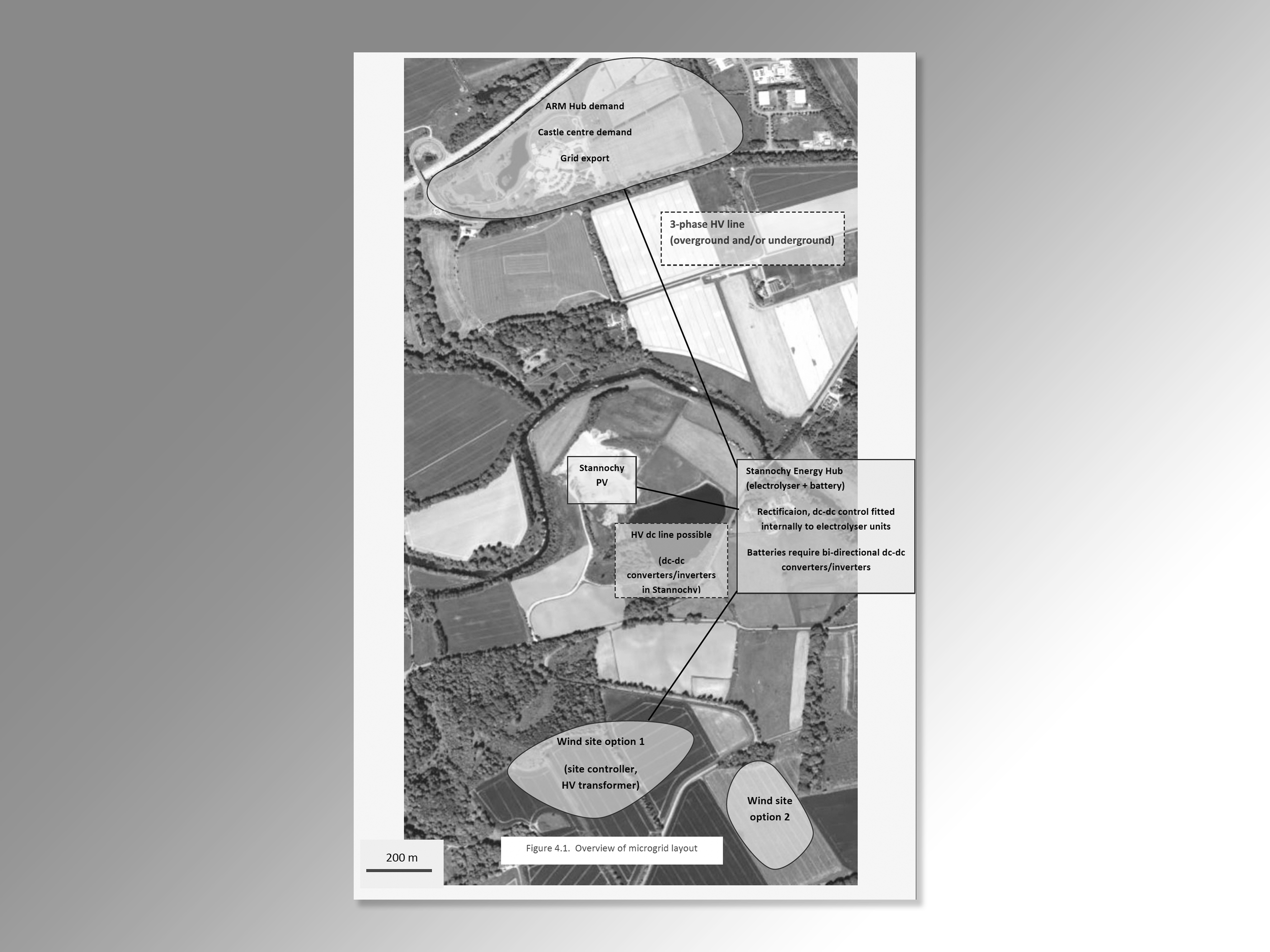Smart Local Energy Systems
June 2023
Research study published into the feasibility of SLES for strategic new developments.
Through funding support from the Energy and Physical Research Council, the University of Edinburgh Schools of Engineering & Geoscience undertook a feasibility study into the potential of SLES technology and a 20 minute neighbourhood approach to infrastructure for strategic developments, using Perth West as a case study. An interdisciplinary team conducted the study with close collaboration with the EnergyRev consortium and Perth West team aimed at the assessment of the techno-economic and social feasibility and value offered by different design options for Perth West’s energy system.
The results showed that the implementation of a smart local energy system (SLES) composed of a PV farm and utility-scale battery can reduce site emissions by 48%. The deployment of a smart system for home charging (i.e., smart charging or vehicle-to-grid schemes) will alleviate the stress on the network and reduce import costs by up to 17%.
As part of the research, a social study found that residents are willing to engage with the net zero agenda, demonstrating an appetite to alter their transport habits and retrofit their homes. Barriers identified were cost and the availability of the charging infrastructure which would be a significant help in accelerating adoption.
Exploring the business case, design and governance models are the next stages of work to unlock the potential of SLES to support climate adaptation through enabling the integration of local renewable generation and demand side flexibility.




